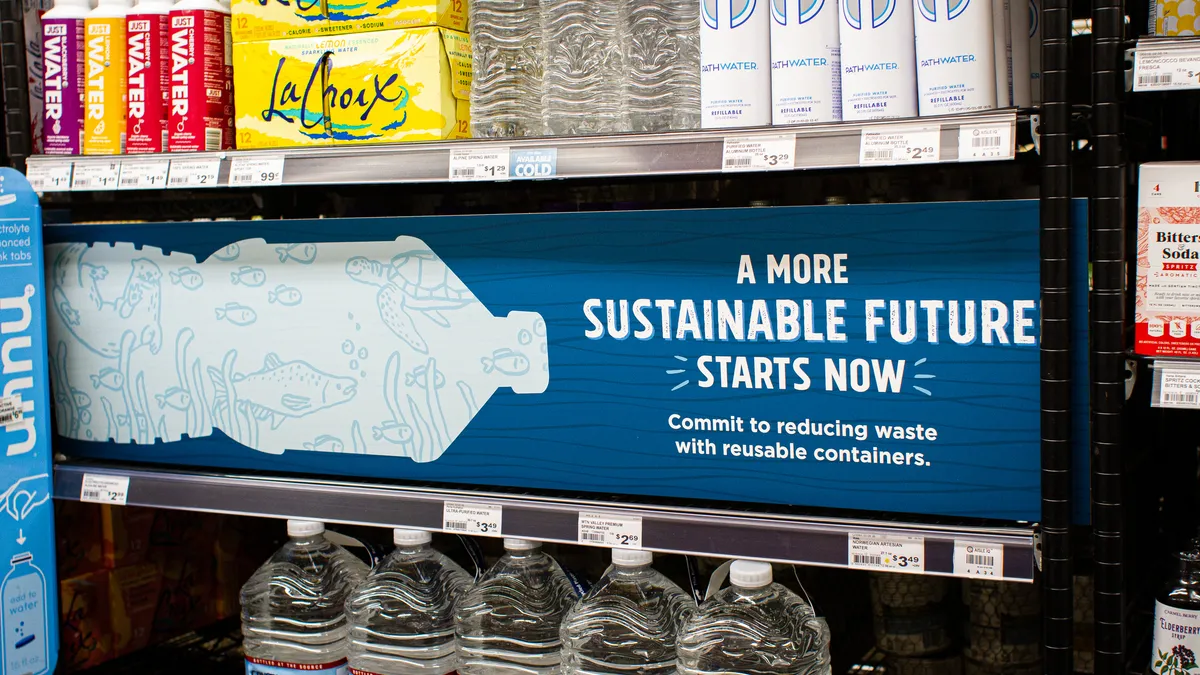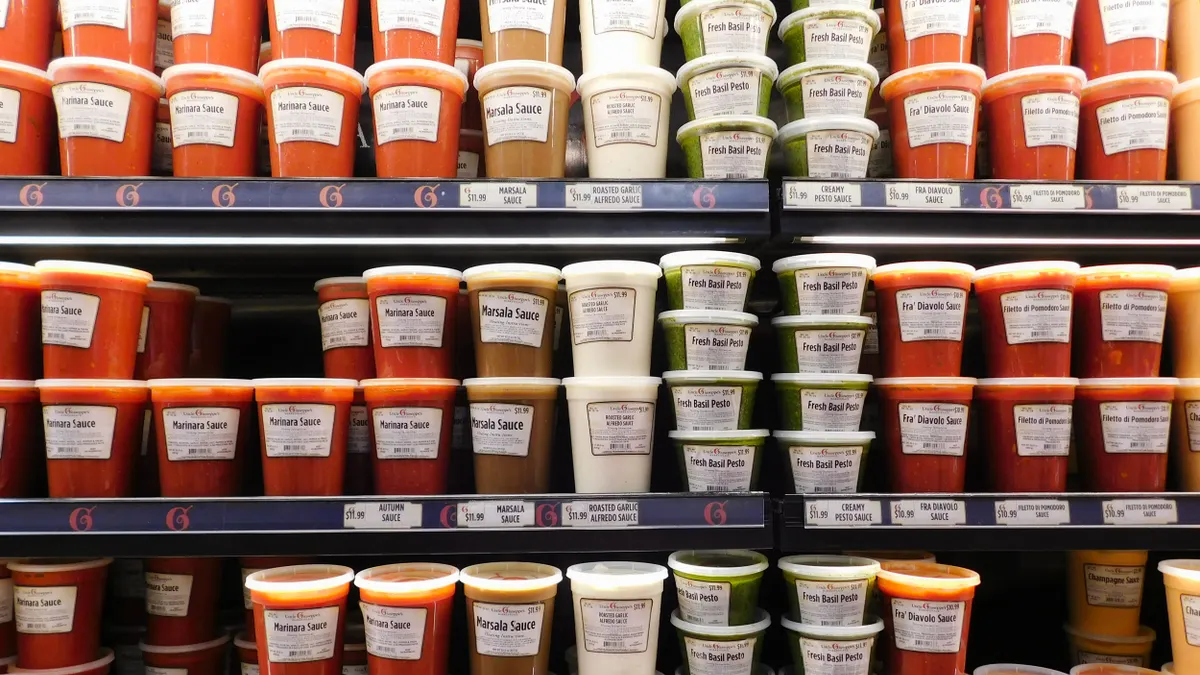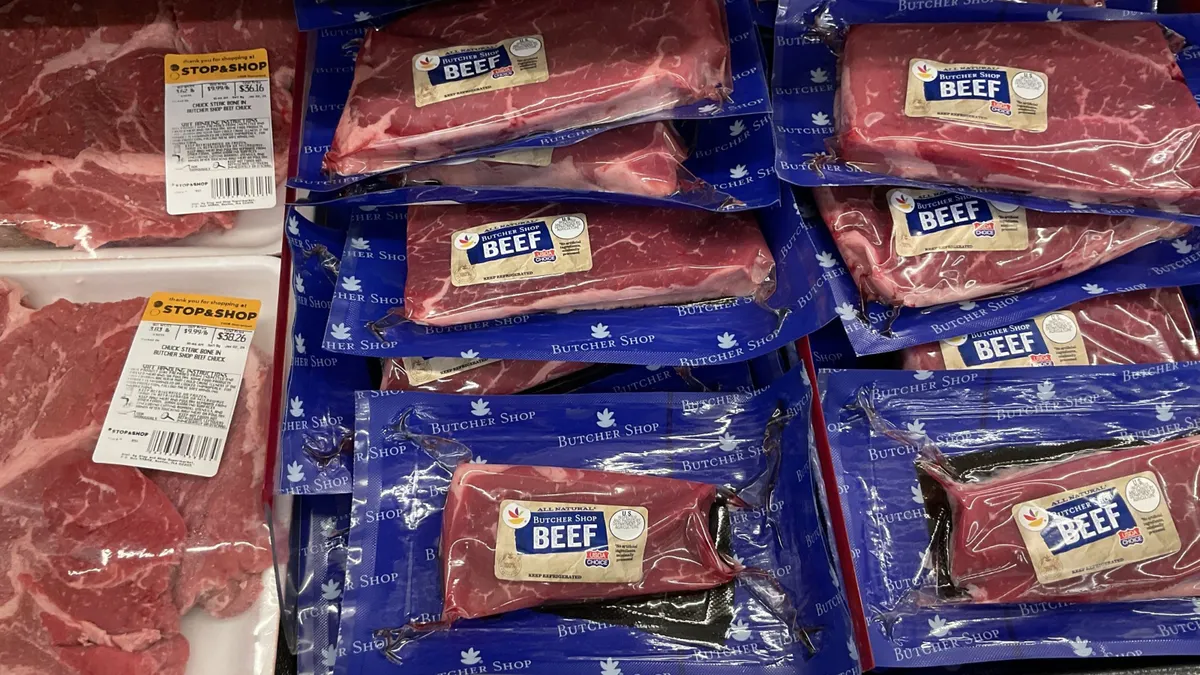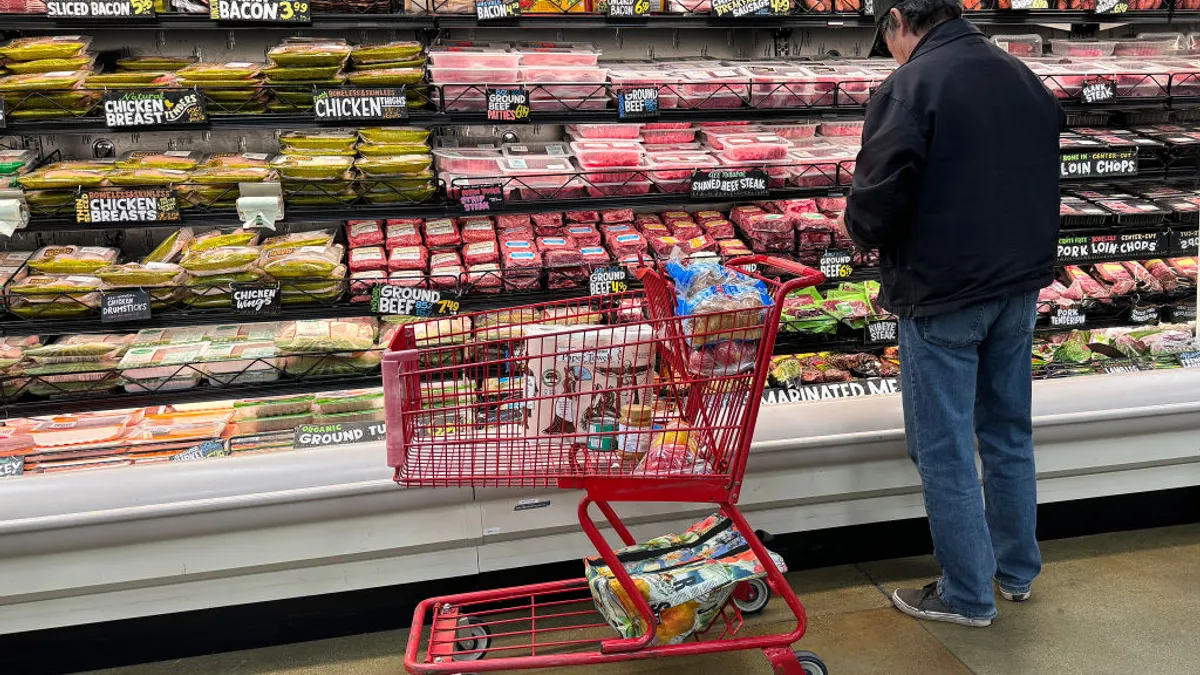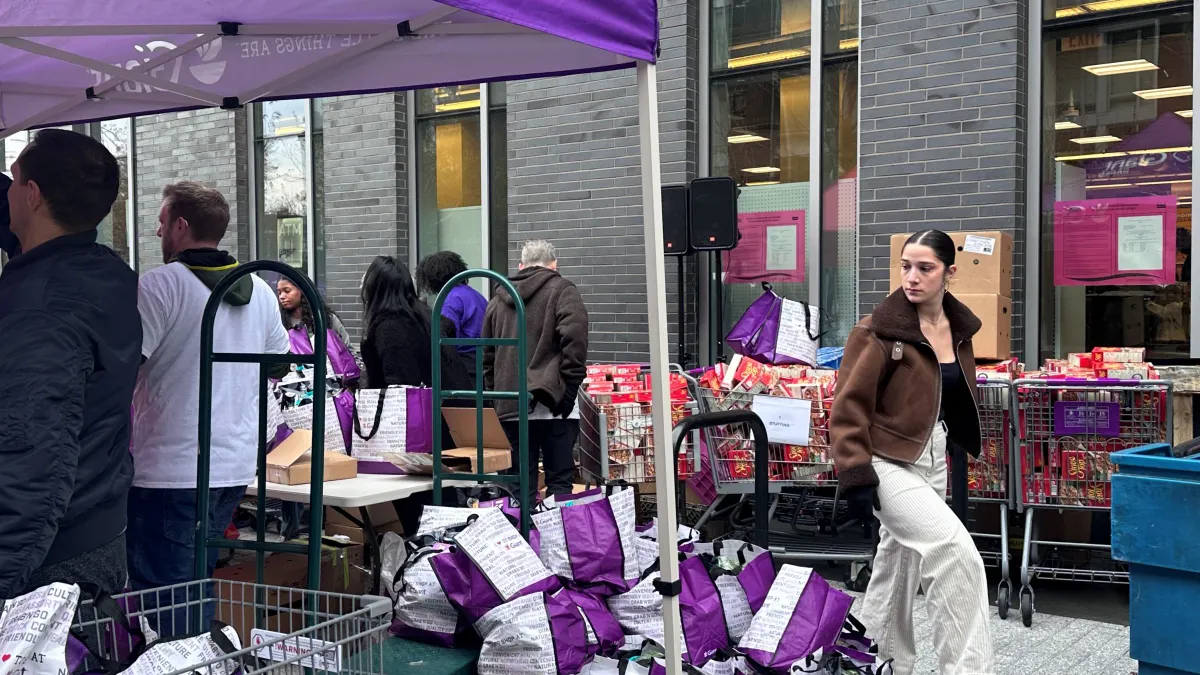This story is the first in a three-part series on how sustainability ties into grocers' bottom lines.
Kroger has poured hundreds of millions of dollars into its Zero Hunger, Zero Waste sustainability initiative, yet when the supermarket company’s leaders answer questions from industry analysts about its financial results, the expansive environment-focused program doesn’t typically come up.
Top managers of other publicly traded food retailers that also highlight their sustainability programs, such as Ahold Delhaize and Sprouts Farmers Market, also don’t often field questions during earnings calls about their Environmental, Social and Governance (ESG) initiatives, even as metrics like same-store sales and earnings per share are top topics of discussion.
That disconnect stems from the fact that while paying attention to the planet might be laudable, demonstrating the connection between sustainability and the bottom line remains a substantial challenge for the supermarket industry, according to analysts.
“You hope companies are doing the right things, but I don’t think as of right now people are going to go, ‘Oh, your sales and earnings were not good and they look ugly, but you're doing good things in sustainability, so we're going to reward you for that,’” said Brian Yarbrough, a consumer research analyst for financial services firm Edward Jones. “We're just not in an environment where that is today, and I don't see that in the foreseeable future.”
Many investors are also skeptical about claims companies make about their sustainability-related goals, in part because of a lack of standards governing the way they measure and report that information, Yarbrough said. That means that aside from fund managers who are specifically focused on putting money into companies based on what they can discern about their ESG progress, there is relatively little interest in using programs related to taking care of the environment as a way to judge a firm’s performance, at least for the time being, he said.
“There’s nothing there like GAAP data or accounting where it says, ‘OK, this seems believable, this is how they’re going to get there,’” said Yarbrough, who tracks retailers including Target, Walmart, Costco, Amazon and Dollar General.
Scott Mushkin, CEO of R5 Capital, shared a similar view. “It’s hard to delineate between the companies that … are looking at ESG through the lens as you would look at any investment in a business, and those that are just doing it to dress the company up to satisfy the latest trend” instead of as a way to improve underlying business fundamentals, Mushkin said.
The fact that companies track and report their progress toward sustainability-related goals differently is a central reason why analysts are paying relatively little attention to that information, said Arun Sundaram, a senior equity research analyst for CFRA Research who tracks the grocery sector.
“In the financial statement universe, you have standards, and then auditors make sure that every company is following the standards,” Sundaram said. “But there’s not something like that right now for ESG. The criteria are different, and there’s no standardization. We’re still very much in the early stages of ESG reporting.”
Efforts are underway to develop standards for how companies report aspects of their performance related to the environment.
The Securities and Exchange Commission is looking into ways to standardize how companies describe climate-related risks that could materially affect their performance to investors in regulatory filings and other documents. As part of that initiative, the agency has proposed laying out specific requirements for how companies disclose details about their greenhouse gas emissions to investors — potentially paving the way for companies to include metrics about sustainability in their earnings statements.
Private-sector groups like the International Financial Reporting Standards Foundation are also working to harmonize the way companies communicate with investors about sustainability-related financial information.
“As a CEO, you have to care and want to do better for the environment and do things that will help the environment, but you also can’t just be throwing a bunch of money at it without any type of return, because you will get penalized for that by investors.”

Brian Yarbrough
Consumer research analyst, Edward Jones
Sundaram and Yarbrough said while their firms have taken steps to guide investors who want to take sustainability and other aspects of ESG into account when making decisions, they remain focused on using basic accounting principles to make recommendations.
Sundaram noted that his firm relies on an automated scorecard developed by in-house quantitative specialists to benchmark companies on their progress relating to ESG, adding that he doesn’t usually touch on sustainability in writing reports about retailers he follows.
Yarbrough said Edward Jones subscribes to an ESG-scoring service so it can provide guidance to investors who ask for it. But he emphasized that most investors are much more concerned with traditional financial measures when they decide where to deploy their funds — and expect company executives to focus on those metrics, too.
“As a CEO, you have to care and want to do better for the environment and do things that will help the environment, but you also can’t just be throwing a bunch of money at it without any type of return, because you will get penalized for that by investors,” said Yarbrough.
‘The next wave of total quality management’
While traditional investors might not be ready to use ESG metrics as a way to judge companies’ performance, sustainability and marketing experts said firms that demonstrate a commitment to the environment nevertheless stand to benefit because shoppers are increasingly paying attention and climate change is directly impacting their operations. Investors are taking notice of that dynamic in the relationship between consumers and grocers.
“Understanding the importance of embracing sustainability … is really the next wave of total quality management,” said Chisara Ehiemere, senior research lead of return on sustainability investment at the Center for Sustainable Business at New York University’s Stern School of Business.
Ehiemere continued: “If you're going to be thinking long term, if you’re going to be making sound business decisions, you're thinking about sustainability opportunities. You're thinking about the benefits from the consumer lens, you're looking at the risks, you're thinking about resiliency.”
The connection between a retailer’s commitment to sustainability and its prospects as a business also plays out in the types of goods it offers to shoppers, data the NYU sustainable business center recently collected in conjunction with consumer behavior analysis firm Circana suggests. Circana was formed in 2022 through the merger of Information Resources, Inc. (IRI) and The NPD Group.
Shoppers have been gravitating toward sustainability-marked products more quickly than conventional goods, and these products’ market share grew to 17.3% of purchases in 2022 despite the high inflation pressuring consumers, according to NYU and Circana’s Sustainable Market Share Index, which takes into account sales of products in 36 categories.
Rising interest among shoppers in buying sustainable products emphasizes the key position grocers play in helping people demonstrate their commitment to the environment through their buying decisions, said Randi Kronthal-Sacco, a senior scholar of marketing and corporate outreach at the Stern School who helped direct the research.
“For a retailer in particular who's interested in growth, which is sustainable products, and the future consumer, they should be gravitating towards sustainability in a big way,” Kronthal-Sacco said.
Doug Yolen, Circana’s vice president for center of store, said the data is a sign for retailers that their public commitment to sustainability will play a growing role in attracting shoppers in the years to come.
“Knowing the channel and the audience who the grocer is talking to is critical for them to be successful,” Yolen said. Whether they are shopping in a store or online, shoppers “really do get into the nitty-gritty when it comes to looking at grocers as a sustainable shopping in-store experience.”
Increasing shopper interest in buying sustainable food from retailers that make environmental stewardship a priority — combined with the savings retailers can realize by taking steps to use natural resources more efficiently and cut waste — underscores the importance for retailers of focusing on the environment and taking concrete steps to broadcast their achievements, said Sandeep Patnaik, a professor of marketing at the University of Maryland Global Campus School of Business.
“If companies, including grocery stores, are to survive and to be sustainable themselves in terms of the bottom line, then they have to have this conversation” about their commitment to sustainability, he said.
The efforts retailers make to position themselves as the sources of environmentally friendly products shoppers want, build sustainable supply chains and cut waste from their operations, Patnaik added, are “music to the investors’ ears.”


